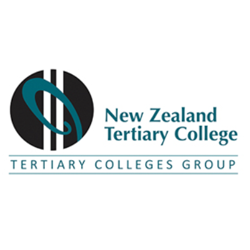
Strengthening the Research, Learning, Teaching Nexus through Mentoring Relationships
Status
Completed: 6 November 2010
Project Details
A project completed in 2010, undertaken by New Zealand College of Early Childhood Education, to strengthen the links between research, teaching and learning in a tertiary institution, through promoting staff/student mentoring relationships.
Aims:
The main aims of the project were to:
- develop research knowledge and research capacity of students and teacher educators, through research mentoring relationships
- evaluate the impact of the mentoring programme on the research literacy skills of students
- identify ways in which reciprocal and responsive learning occurred between teacher educators and students.
Methodology:
The project used a mixed methods approach involving:
- student questionnaires to provide quantitative data
- recorded discussion during tutor/student focus groups to provide qualitative data
- students' reflective journal entries which also provided qualitative data
- analysis of research use in curriculum documents to provide further quantitative data.
Team

Elizabeth Elsworth
Project Leader
New Zealand College of Early Childhood EducationStatus
Funding
$9,994.00 (excl GST)
Key Findings
The key findings from the project included:
- Overall, the findings of this project show that the mentoring project helped develop the research literacy skills of the students, while rekindling the research interest of several tutors. Both qualitative and quantitative data showed that students improved in their ability to comprehend, analyse, apply and evaluate research.
- At the end of the mentoring project students’ ability to analyse and critique a research article was reassessed. The majority of students were able to make valid judgements about the strengths and weaknesses of research articles. Some students were able to use research findings to critique current practices in New Zealand early childhood centres and identify gaps in policy and practice.
- Underpinning the project was the Māori concept of ako, which highlights the value of a reciprocal teaching/learning relationship. It was hoped that, through mentoring meetings, students and tutors could experience being a teacher and a learner, an expert and a novice. Although not all mentoring relationships did evolve in this way, many tutors and 14 students found that they could be both teachers and learners.
- Students quickly shifted from being passive learners to taking a more proactive role, through the necessity to source research articles and prepare an analysis of the article for each mentoring meeting. Both students and teacher educators were able to gain a first-hand experience of the reciprocal learning relationships, which are advocated in the New Zealand early childhood curriculum (Te Whāriki) as the basis of quality interaction and teaching practice with children.
- Findings from this project suggest that mentoring could help prepare students to use research-based evidence in their teaching practices. Mentoring gave many students the opportunity to rehearse and articulate their research ideas and gain the confidence needed to make a positive difference to current practices.
Key Recommendations
The key recommendations from the project included:
Furthering research knowledge and literacy | A mentoring programme can be a time efficient and cost-efficient way to further the research knowledge and literacy of both teacher educators and students. Working alone with a mentor, or in small groups, requires students to be more proactive in their learning. Through discussion with experienced teacher educators, students increase their awareness of the relevance and practical application of research findings to their own teaching practices. Students can contribute to the learning and teaching of teacher educators through their role in providing recent research articles around topics which they may be currently teaching, studying, or researching themselves.
Strengthening the research, teaching and learning nexus | Research mentoring programmes could also be used to strengthen the research, teaching and learning nexus within pre-service teacher education programmes for primary and secondary education and other sectors of tertiary training (e.g. medical training) where research informs practice.
Further research | A further development of this research mentoring programme would be to track the student graduates who participated in this programme to investigate if the mentoring has made any impact on their current teaching practices in early childhood centres. Also, a closer analysis of specific instances of reciprocal learning, through further research, could offer more insight into this important principle of learning.
A research report prepared by Elizabeth Elsworth.
(PDF, 250 KB, 16-pages).
- 12 November 2010